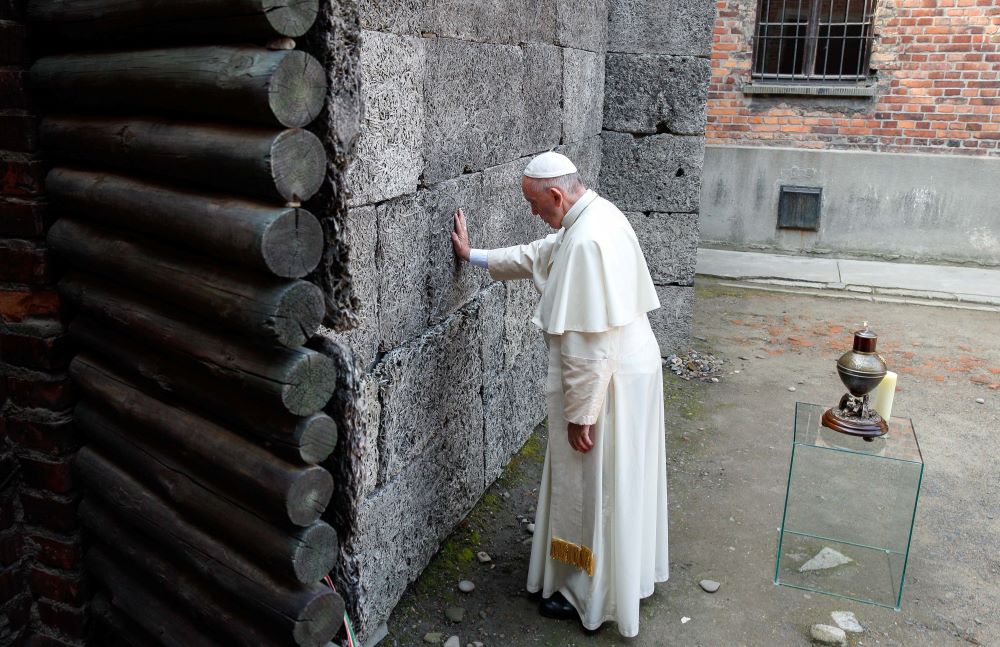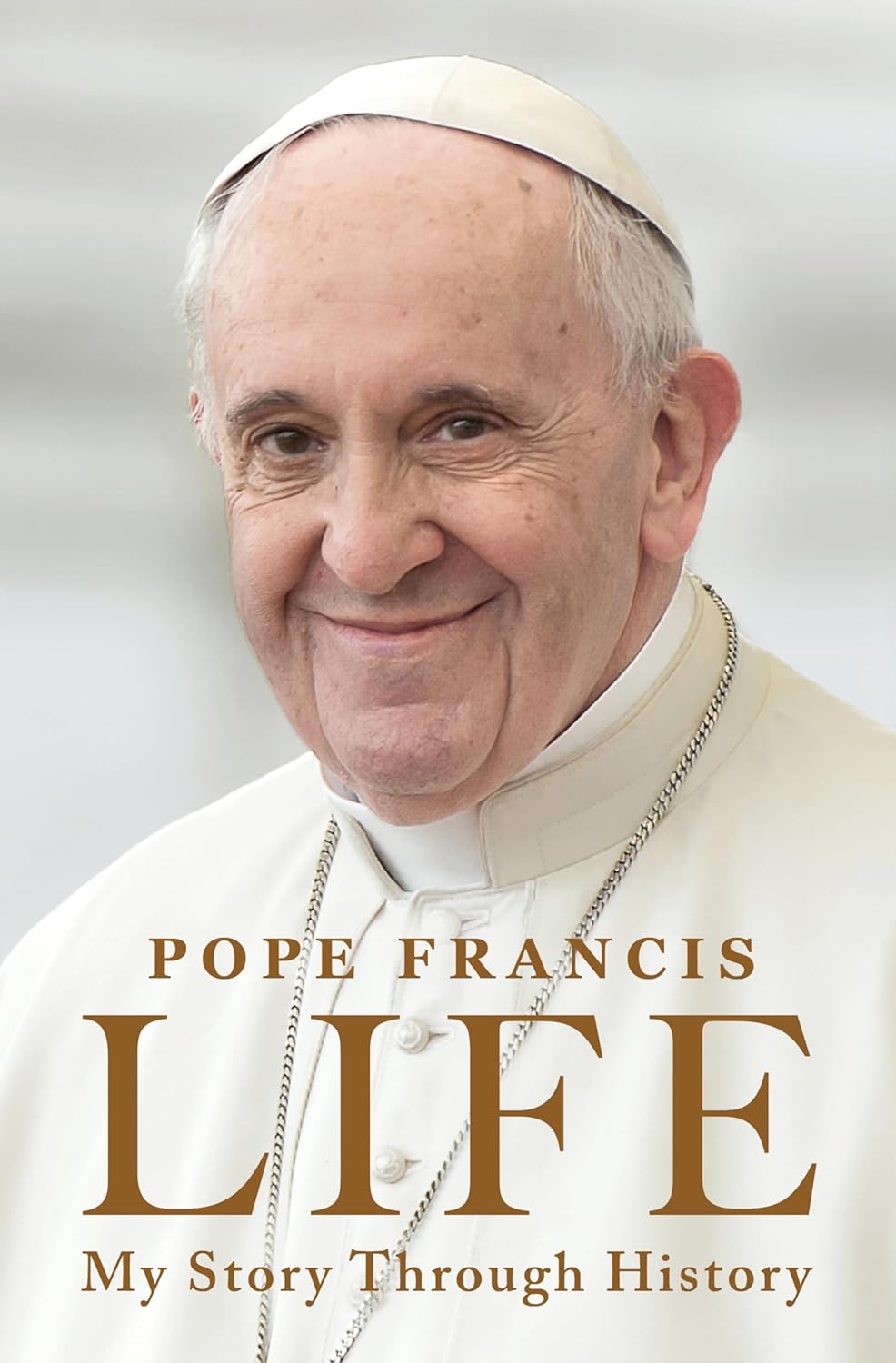
Pope Francis touches the death wall at the Auschwitz Nazi death camp in Oswiecim, Poland, in this July 29, 2016, file photo. Francis had asked that his friend, Rabbi Abraham Skorka, join him when he visited the Auschwitz-Birkenau extermination camp. (CNS/Paul Haring)
The Shoah, or the Holocaust, has weighed on my family ever since I was born. My grandparents and parents constantly spoke about my great uncles and their families who were reduced to ashes at Auschwitz, Treblinka, and Chełmno. In my parents' home in Argentina there were photos of all of them. There were letters sent to my grandfather from the Litzmannstadt Ghetto (Łódź) by his sisters. There were many books that testified to the massacre.
I will never forget my father's insistent and recurring question: How could human beings devise such an abomination?

Many decades later, on July 29, 2016, my friend Pope Francis journeyed to the Auschwitz-Birkenau extermination camp. During a telephone conversation we had three weeks before, he suddenly said to me: I would like you to be there when I visit those death camps. So, I was there with him at that bleak and horrible place where he chose not to deliver any remarks. As he said on Vatican Radio, "I would like to go to that place of horror without speeches, without crowds — only the few people necessary. Alone, enter, pray. And may the Lord give me the grace to cry."
Clearly, the Shoah had touched him deeply, but I did not fully understand why he desired my presence there.
I was aware of his abhorrence of the evil of antisemitism. I remembered when on March 11, 2012, the Buenos Aires newspaper La Nación published an article by Hernán Dobr that described the antisemitism suffered by Argentine Jewish soldiers at the hands of their superiors during the Malvinas/Falklands War. Cardinal Jorge Mario Bergoglio took the initiative to phone me the next day. For several minutes he expressed to me his deep pain over the ignominious acts reported by the article. He emphasized his shock at such behavior by officers of the Argentine army against their Jewish comrades.
After his election as Pope Francis, in May 2015, major antisemitic demonstrations took place in Argentina. Pope Francis again reached out to me from the Vatican to express his pain, concern and personal commitment to the Jewish community.
His empathy toward Jews was also evident in the book about our dialogues that we co-authored, On Heaven and Earth. He exhibited a special sensitivity toward the subject of the Shoah, which he described as a genocide, but one with the distinctive characteristic of being "an idolatrous construction against the Jewish people. … Each Jew that [the Nazis] killed was a slap in the face to the living God in the name of idols."
Advertisement
Such thoughts came to mind when I received a copy of the pope's new book, Life: My Story through History. I was immediately drawn to its second chapter, entitled, "The Extermination of the Jews" during the Second World War. He narrates how his family in Buenos Aires held hushed conversations condemning what was then happening to the Jews in Europe. Although the adults attempted to shield the children from their horror, young Jorge perceived his parents' pain and anger. Their reactions indelibly marked him.
When I read his account, I immediately saw echoes between his Argentine childhood in an Italian Catholic immigrant family and my own childhood in a Polish Jewish immigrant family. Indeed, the echoes reverberated in the same chapter as he goes on to recall the stories of the Shoah that I had told him on multiple occasions and his memory of his visit to Auschwitz-Birkenau.
Together we have studied the topic of the hatred of Jews many times. I always observed his sincere feelings and commiseration with its victims, but we never discussed the experiences of our individual lives that led us to have a special concern about this painful issue. As I look back over my life, and after reading Life: My Story through History, I see that both our childhoods led us to a complementary and converging commitment to addressing the question that had tormented my own father so much: How could human beings devise such abominations?




